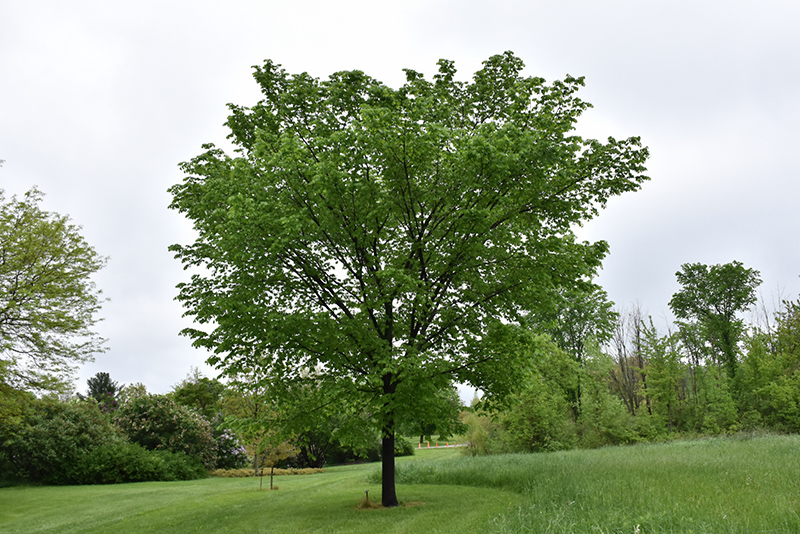Valley Forge Elm
Ulmus americana 'Valley Forge'
Height: 70 feet
Spread: 60 feet
Sunlight:
![]()
Hardiness Zone: 4b
Other Names: White Elm, Water Elm, Gray Elm, Swamp Elm
Description:
An extremely hardy and adaptable shade tree with an upright vase-shaped habit of growth and a very dense branching structure; this plant is probably the best choice for modern landscapes due to its high DED resistance; a classic appearance
Ornamental Features
Valley Forge Elm is primarily valued in the landscape for its ornamental globe-shaped form. It has dark green deciduous foliage. The serrated pointy leaves turn an outstanding yellow in the fall.
Landscape Attributes
Valley Forge Elm is a dense deciduous tree with a more or less rounded form. Its average texture blends into the landscape, but can be balanced by one or two finer or coarser trees or shrubs for an effective composition.
This is a relatively low maintenance tree, and is best pruned in late winter once the threat of extreme cold has passed. Gardeners should be aware of the following characteristic(s) that may warrant special consideration;
- Insects
- Disease
Valley Forge Elm is recommended for the following landscape applications;
- Shade
Planting & Growing
Valley Forge Elm will grow to be about 70 feet tall at maturity, with a spread of 60 feet. It has a high canopy of foliage that sits well above the ground, and should not be planted underneath power lines. As it matures, the lower branches of this tree can be strategically removed to create a high enough canopy to support unobstructed human traffic underneath. It grows at a fast rate, and under ideal conditions can be expected to live for 80 years or more.
This tree should only be grown in full sunlight. It is an amazingly adaptable plant, tolerating both dry conditions and even some standing water. It is not particular as to soil type or pH, and is able to handle environmental salt. It is highly tolerant of urban pollution and will even thrive in inner city environments. This is a selection of a native North American species.







